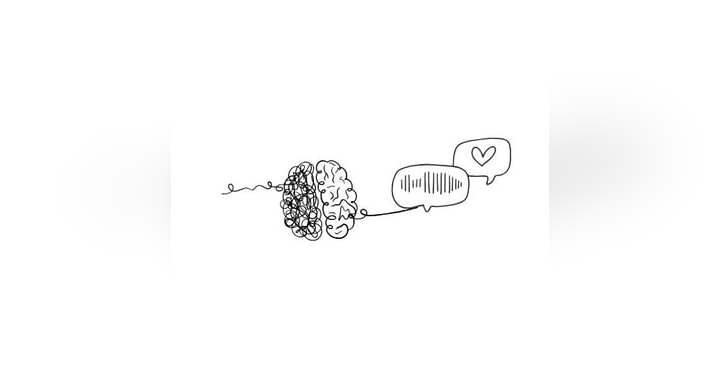The Complexities of Trauma Bonding in Friendships: Navigating Mental Health and Self-Care

In today's episode of the Women's Mental Health podcast, we delve into the topic of trauma bonding in friendships. As licensed psychotherapists, we explore the intricacies of forming deep connections with friends who have shared similar traumatic experiences. While these bonds can be supportive, they can also be complex and potentially detrimental to our mental health and well-being. In this article, we will examine the concept of trauma bonding with friends, discuss the signs of unhealthy friendships, explore the impact on mental health, and provide strategies for breaking the cycle of trauma bonding. It is crucial to prioritize our own mental health and self-care while navigating these relationships, ensuring that they contribute positively to our healing and growth.
Recognizing Trauma Bonding in Friendships
Trauma bonding with friends occurs when individuals who have experienced similar traumas form a strong emotional connection based on shared pain and suffering. This bond can be intense, but it is essential to recognize when it becomes unhealthy. Signs of trauma bonding within friendships include excessive reliance on each other for emotional support, difficulty setting boundaries, and a blurred sense of individual experiences and identities. It is crucial to assess whether the friendship is primarily based on shared trauma rather than a balanced connection.
Trauma Bonding in Friendships: The Impact on Mental Health
Trauma bonding can have a significant impact on our mental health. It can lead to codependency, unhealthy coping mechanisms, and hinder personal healing. It is common for individuals to minimize their own feelings by comparing them to others who may have experienced more severe trauma. However, it is essential to acknowledge that each person's experience is valid and unique. Comparing ourselves to others only diminishes our own struggles and prevents us from fully processing our emotions.
Breaking the Cycle of Trauma Bonding in Friendships
Breaking the cycle of trauma bonding requires setting boundaries, promoting open communication, seeking therapy, and focusing on individual healing and growth. It is crucial to establish healthy boundaries within the friendship and communicate openly about any concerns or issues that arise. Seeking therapy can provide a safe space to process emotions and gain insight into the dynamics of a friendship. Additionally, fostering connections based on shared interests and values can help create a more balanced and fulfilling social support system.
Trauma Bonding in Friendships: Does it Prevent Healing?
While trauma-bonded friendships can initially provide support, they can also hinder personal healing if they become stagnant or toxic. Continuously sharing trauma without processing it with a professional can keep unresolved pain at the forefront and prevent forward progress. It is essential to prioritize individual healing and growth, even if it means stepping away from friendships that no longer serve our well-being. Each person's healing journey is unique, and it is crucial to surround ourselves with friends who prioritize their own growth and can offer mutual support.
Risks of Trauma Bonding in Friendships
There are risks associated with trauma-bonded friendships. These risks include being stuck in the past, experiencing triggers, and developing emotional codependency. It is important to recognize these risks and prioritize personal healing. If a friendship is perpetuating negative patterns or hindering growth, it may be necessary to reevaluate its impact on mental health and well-being.
Fostering Healthy Relationships alongside Trauma Bonding
To foster healthy relationships alongside trauma bonding, it is crucial to focus on individual healing beyond the shared trauma. Establishing healthy boundaries and building connections based on shared interests and values can help create a more balanced and fulfilling social support system. It is important to surround ourselves with friends who prioritize their own personal growth and can offer mutual support. Engaging in activities and hobbies that are not solely centered around the trauma can help create a more well-rounded and fulfilling friendship.
Conclusion and Future Outlook About Trauma Bonding in Friendships
In conclusion, trauma bonding within friendships can be both supportive and complex. While these bonds can provide understanding and support, it is essential to recognize when they become unhealthy or toxic. Prioritizing our own mental health and self-care is crucial to navigating these relationships. By setting boundaries, seeking therapy, and focusing on individual healing and growth, we can break the cycle of trauma bonding and foster healthier connections. It is important to remember that friendships formed through trauma bonding may not be lifelong, and it is okay to let go of friendships that no longer serve our well-being. Moving forward, we must continue to prioritize our mental health and seek support from friends who encourage our growth and healing.
Thank you for joining us on this episode of the Women's Mental Health podcast. We hope that this discussion has provided valuable insights into trauma bonding within friendships and the importance of prioritizing our mental health and self-care. Remember to subscribe, share, and leave a review to support our podcast. Stay tuned for our next episode, where we will continue to explore topics that empower your emotional and mental health journey. Take care and be kind to yourself.
Note: This article is based on the Women's Mental Health podcast episode transcript. All quotes are verbatim and directly from the transcript.
Randi Owsley, LMSW, is a skilled and compassionate Licensed Master of Social Work and clinical psychotherapist who lends her expertise as the co-host of the "Women's Mental Health" podcast. With a Masters in Clinical Social Work from the prestigious University of Southern California, Randi has honed her specialization in women's mental health issues, trauma, grief, and personality disorders. To learn more about Randi and the valuable insights she shares, visit her websites at randiowsley.com and heyrandi.com.














